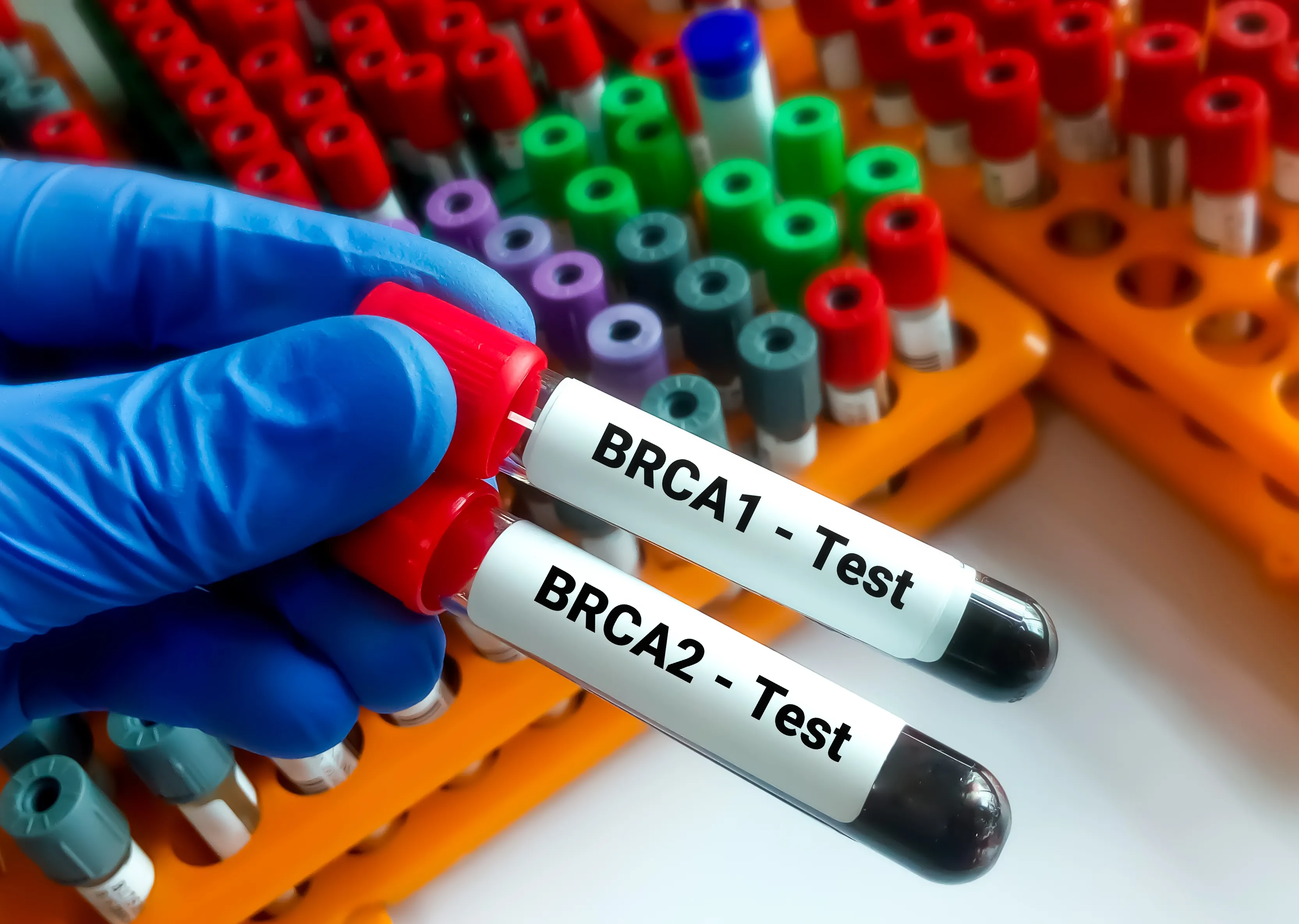Breast Cancer Risk: Is Genetic Testing Right For Me?
Genetic testing is not for everyone, but it can be the right choice for some people with certain risk factors. The guidelines for genetic testing can be tricky, so it is a good idea to discuss with an expert such as a genetic counselor, a nurse practitioner or a physician prior to testing, as well as afterwards, to review your results in detail.
What is genetic testing?
Genetic testing compares your genes to genes that we know about that increase your risk for breast cancer. These tests look for gene mutations, or changes, which are generally inherited either from your mother or father. These tests require a sample of saliva or blood which is then sent to a lab. Genetic testing for breast cancer looks for mutations in two specific genes: BRCA1 and BRCA2 as well as other genes that can be associated with increased risk of certain cancers.
To receive genetic testing, you are asked to provide information about your personal medical history and age, as well as a three-generation family pedigree (but it is okay if you do not know it).**If you are deemed a candidate, insurance usually covers genetic testing. If it does not, most of the genetic testing companies will contact you first to let you know the cost, and make sure you want to proceed. Most companies have a maximum out of pocket of $150-250.
What can genetic testing tell me?
If your genetic testing demonstrates a pathogenic mutation, you might be at increased risk of certain types of cancer. Women with BRCA1 and BRCA2 and other gene mutations have an increased risk of breast cancer and an increased risk of ovarian, pancreatic and possibly other cancers. Often these cancers occur at a younger age and can be more aggressive. Men with these mutations also have an increased risk of breast, prostate, pancreatic and possibly other cancers. You also have a chance of passing this gene mutation on to your children. While your risk of developing cancer is higher than average, it does not guarantee you will develop cancer. Once testing is completed, a genetic counselor and your breast care provider will go over your results and help you decide how to tailor your treatment or cancer surveillance. Treatment can range from high risk surveillance, to medications, to surgery to decrease the chance of developing cancer. It can also affect what medications are used in the event you are diagnosed with cancer.
Is genetic testing for breast cancer right for me?
According to the ACS, most doctors agree that the following groups of people should consider testing:
- Women who have been diagnosed with breast cancer at a young age, have certain types of breast cancers, as well as those who are at a certain level of risk due to family history or descent (such as Ashkenazi Jewish ancestry, which is linked to a higher risk of BRCA gene mutations).
- People with a known family history of BRCA or other gene mutations.Women diagnosed with ovarian or pancreatic cancer.
- Men diagnosed with breast cancer, high-grade or metastatic prostate cancer or pancreatic cancer.
- People with a family history of breast cancer at a younger age, multiple relatives with breast cancer or breast cancer in a male family member.
- People with a close family member with a history of ovarian, pancreatic or metastatic prostate cancer.
Other details about risk factors can be found here.
Where should I start?
Because testing considerations can be detailed, your health care provider, a genetic counselor, gynecologist or oncologist can help you to decide if testing is right for you. It is normal to be curious about your risk, but it is important to know if the results of genetic testing will be helpful to you. Direct-to-consumer gene testing companies have not been investigated the same way as medical genetic testing and their results cannot necessarily be believed. It is best to start with a trusted health care provider.
**Since 2017, Chesapeake Regional Breast Care has partnered with Myriad Genetics to offer genetic counseling to qualified patients. Every patient who undergoes a mammogram at Chesapeake Regional Healthcare is automatically screened for breast cancer risk based on family history. If a risk is identified, patients are asked to speak with a certified genetic counselor by phone to determine if genetic testing is recommended. Laboratory tests are completed for applicable patients, and a nurse practitioner from Chesapeake Regional Breast Care's high-risk clinic personally contacts each patient with these results.

Dr. Stephanie Repole is a board-certified, fellowship trained surgeon specializing in breast surgery. She received her medical degree from Eastern Virginia Medical School (EVMS) in Norfolk, Va. and her Bachelor of Science degree from the University of Virginia in Charlottesville, Va. Dr. Repole’s general surgery residency was completed at EVMS, and her Breast Oncology fellowship was completed at Baylor, Scott and White Health in Dallas, Texas. She serves as an Assistant Professor of Clinical Surgery at EVMS and as a Clinical Adjunct Faculty for Liberty University College of Osteopathic Medicine in Lynchburg, Va. Dr. Repole is a member of the American College of Surgeons, the American Society of Breast Surgeons, the L.D. Britt Surgical Society and has been recognized as a “Top Doc” for Breast Cancer Surgery numerous times by Coastal Virginia Magazine.